Hesitant Hegemony for China and the US? An Interview with Lixin Wang
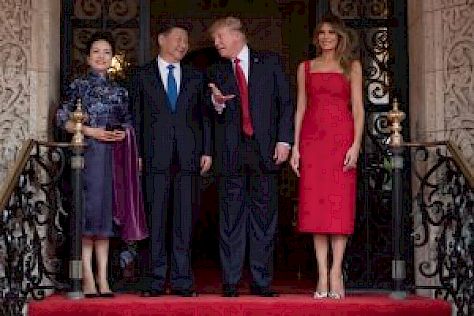
Speculation is mounting that the United States, with Donald Trump cast in the role of president, will step back from the world stage, and China will increasingly lead. But what would China face if it decided to assume international leadership and advance its own ideas and agendas for global order? Drawing lessons from the American experience, Prof. Lixin Wang's new book A Hesitant Hegemony (Beijing: China Social Sciences Press, 2015) indicates that China should not hastily seek world leadership and that the burden of leading the world is too heavy for China to bear. In the book, Lixin Wang incorporated both a cultural perspective and an international history approach to examine American identity and its search for international order in the first half of the twentieth century.
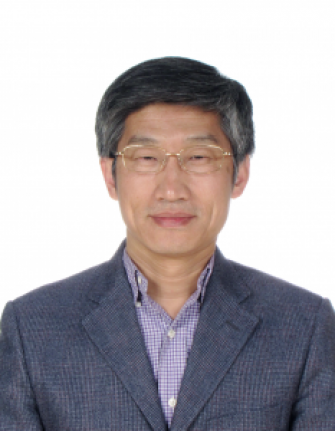
Lixin Wang (王立新), a professor of history at Peking University, Beijing, is one of the leading historians advancing international and transnational history in China. He recently received the Yangtze River Scholar Award, the highest academic award issued to an individual in higher education by the Ministry of Education of China. In our interview with him, Lixin Wang talks about his own path to history: from growing up in a small mountain village in Northeast China to his undergraduate education and graduate studies at Nankai University in Tianjin, where he studied American history and completed his Ph.D. dissertation in 1996. His first book sought to re-evaluate the American missionary role in China through the lens of global modernity. In the interview, he recalls the intellectual interactions between him and American historians, discusses his latest book, and also shares his thoughts on the state of the fields of international and global history in China.
— Kaiwei Teng
INTERVIEWER
To get us started, could you tell us about where you were born and raised? How did you come to study history?
LIXIN WANG
I was born in a small mountain village of Liaoning Province in Northeast China. Before I went to the high school of Xingcheng Town, I had never left the village. After graduating from high school in 1983, I became an undergraduate student in the history department of Nankai University, Tianjin, the third largest city in China, where I earned a BA, MA and PhD in history.
INTERVIEWER
What was it like studying American history at Nankai University just after China reopened its doors to the West. Could you tell us a bit about your PhD dissertation?
WANG
After the normalization of Sino-American relation in early 1979, some of China's top universities began to establish close exchange relations with American universities and each year there were several American historians visiting, giving lectures, and even teaching one-year courses at my department. I listened to the lectures of Thomas Paterson (University of Connecticut) and Hyman Berman (University of Minnesota), and took courses taught by William Shea (University of Arkansas) and Carol Patillo (Boston College).
My Ph.D. dissertation, entitled American Missionaries and Modernization of China in the Late Qing (Ching) Dynasty (published in 1997 by Tianjin People's Press) explores how American missionary enterprises and activities exported modernity to China and thus promoted the transformation of China in educational, cultural, social and even political fields. In this book I attempted to challenge the cultural-imperialist paradigm dominating the Chinese narrative of missionary history up to then and re-evaluate the missionary role in China through the lens of global modernity. It is widely regarded as a landmark in the Chinese historiography of Christian missionary movement in China.
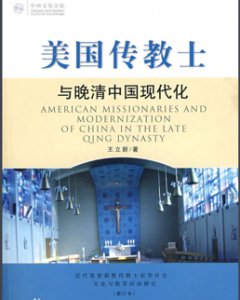
INTERVIEWER
When did you become interested in international history?
WANG
In the academic year of 2007-2008, I did research at Yale University as a Fulbright Visiting Research Scholar, where I became interested in international history. After returning to China, I began to introduce the approach and perspective of international and transnational history into China.
INTERVIEWER
Which scholars have strongly influenced your approach to studying history?
WANG
Prof. Yang Shengmao of Nankai University, the founding father of American history programs in China and the supervisor for my MA and PhD dissertations. Prof. Akira Iriye of Harvard University, whose cultural and international approaches to history attract me and with whom I have maintained a friendship for a long time. Prof. John L. Gaddis of Yale University, who was my hosting professor when I stayed at Yale and whose adoption of theories of international relations into Cold War international history studies continues to inspire me.
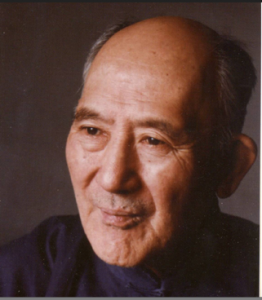
INTERVIEWER
I want to turn to your most recent project, A Hesitant Hegemony: America's Search for National Identity and International Order after Its Emergence as a Great Power (Beijing: China Social Sciences Press, 2015). What has been the reaction to the book in China? How did you incorporate an international history approach into the book?
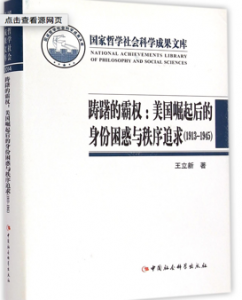
WANG
The book has been a bestseller among scholarly history books published in China in the past two years. The publisher and the Research Institute of the World Modernization Process at Peking University jointly sponsored a symposium on the book in December 2015 and some prominent scholars specializing in American studies, international history and international relations participated in the conference and gave their comments. A few book reviews appeared in journals and on internet forums. Several academic institutions, including the Pangoal Institution, one of the most influential think tanks in China invited me to give talks on the book. The Pangoal Institution recommended my book as one of the key readings for its members, even some leaders who play some role in China's foreign policy-making process.
In fact, the cultural perspective is more striking than the international approach in my book. I paid more attention to the intellectual foundations of US foreign policy and the cultural aspect of American international relations. Of course, I also incorporate an international history approach into my book, such as tracing the rise of the US as the world leader in a global context and using one chapter to explore American non-government organizations' search for the international order.
INTERVIEWER
What motivated you to write A Hesitant Hegemony?
WANG
China is rising to the status of the world power and Chinese elites are considering China's new role in the international arena since the dawn of the new century. I wondered if the American experience could be illuminating for China. What I most want to tell Chinese readers (including Chinese leaders) is that, according to American lessons, China should not hastily seek world leadership and that the burden of leading the world is too heavy for China to bear.
INTERVIEWER
As the US steps back from the world stage, some say China will fill the vacuum left by it. What role do you see China playing internationally and what differences would China bring to the international order?
WANG
China will play a positive role in global economy and contribute to the economic growth of underdeveloped countries. It is very likely that China will become the leader of East Asia and the Pacific region, or at least China is seeking that goal. But I do not think China will have the power to fill the vacuum in Europe and the Middle East if the US leaves or steps back. The US world order plan, which was put forward and adopted in the aftermath of Second World War, originated from its founding ideology, political culture, and domestic democratic governance. It seems that China's leaders have not figure out a comprehensive blueprint for world order and neither Confucianism nor current Chinese domestic political culture can tell Chinese leaders something in their attempts to devise a Chinese version of international order. What Chinese leaders are pursuing is the recovery of the position of China as the Middle Kingdom.
INTERVIEWER
You are the first to start a seminar course on international history in China. How did you design this course? What kinds of readings do you set?
WANG
It's a reading seminar. The topics of the seminar include: mass culture, consumerism and global capitalism; international human rights; the role of international non-government organizations in international relations; empire and imperialism; disease, environment and global governance; international terrorism; sports and international politics; civilization and international relations, etc. The reading assignments are selected from the latest publications written by American and Chinese historians, such as Walter LaFeber, Akira Iriye, Emily Rosenberg, Mark Bradley, Jeremi Suri and Erez Manela, among others.
INTERVIEWER
What are your thoughts on the state of the fields of international and global history in China? What is preoccupying Chinese international and global historians at the moment? How does this differ from what is preoccupying international and global historians in other countries?
WANG
China is at an early stage in terms of international and global history studies. Outstanding works based on empirical and primary study are few. However, more and more historians are becoming interested in these two approaches and are attempting to re-explore both Chinese and American histories through international, transnational and global perspectives. The internationalization of modern China and the US's overseas cultural and informational activities are two popular research areas.
INTERVIEWER
What books have you been reading recently with an international or global bent that have really stuck with you? Where do you see the field going in the future?
WANG
Two books have really impressed me recently: Sara Snyder's Human Rights Activism and the End of the Cold War: A Transnational History of the Helsinki Network (2011) and David Armitage and Jo Guldi's The History Manifesto (2014). I think that the history of international institutions, global governance and international society will be the new frontiers in international and global history. On the other hand, with the intensification of power competition among the US, China and Russia, geopolitical and strategy studies will be emphasized once again, and even brought back to some extent to the center of international history studies.
INTERVIEWER
Could you share with us a little about your current research?
WANG
My current research explores how American self-understanding and self-image affected its international conduct and foreign policy in the twentieth century. I want to combine cultural and international approaches in my explanation of the international history of the US as a great world power.